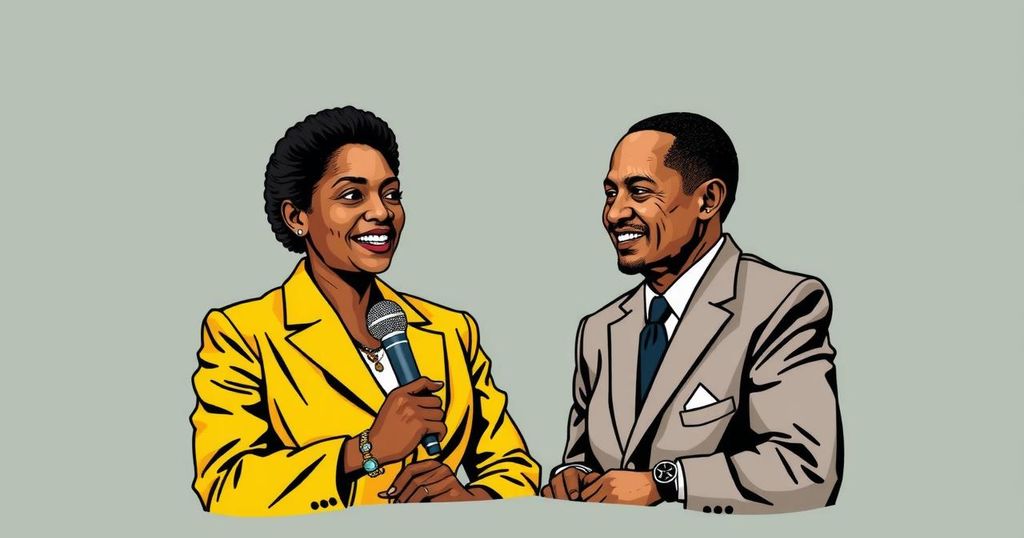Namibia’s Pivotal Elections: Nandi-Ndaitwah vs. Itula in Historic Contest
Namibia has commenced voting in a critical election, with Netumbo Nandi-Ndaitwah of Swapo seeking to become the first female president. Her main opponent is IPC’s Panduleni Itula. High voter turnout and youth engagement signal a competitive electoral atmosphere, as the ruling party navigates challenges including unemployment and corruption allegations. The outcome may hinge on securing over 50% of the votes or proceeding to a runoff.
Voting has commenced in Namibia, heralding a potentially transformative election as the ruling South West Africa People’s Organization (Swapo) seeks to consolidate its 34-year tenure. Netumbo Nandi-Ndaitwah aims to make history by becoming the country’s first female president while contesting against Panduleni Itula from the Independent Patriots for Change (IPC). With lingering issues such as high unemployment and accusations of corruption affecting Swapo’s reputation, the election is deemed the most fiercely contested since independence in 1990, involving a dense field of candidates, including Nandi-Ndaitwah, Itula, and others.
Nandi-Ndaitwah, a seasoned politician with over 25 years in government, stressed the importance of civic participation as she cast her vote early in Windhoek. Polling stations have reported high turnout, indicative of the engagement level among the electorate, many of whom are young voters. Itula, a former dental surgeon and law practitioner, aims to leverage previous electoral support to unseat the established power effectively. Interim President Nangolo Mbumba oversees the transition following the late Hage Geingob’s presidency, as the nation also decides on new parliamentary members.
Namibia, a peaceful nation with a population of approximately 3 million, is conducting an election that could reshape its political landscape. Swapo, leading the country since its independence, faces growing challenges due to socioeconomic issues that have diminished its support. The election’s significance extends beyond the presidential race, as young voters, comprising over half of the electorate, are expected to play a critical role in determining the outcome. The need for a candidate to secure more than 50% of the votes adds an element of anticipation, with a potential runoff looming for top contenders, thus intensifying the political stakes.
The elections in Namibia represent a pivotal moment in its democratic journey. With high voter engagement and significant challenges facing the ruling party, the outcomes will reflect the electorate’s demand for change. Nandi-Ndaitwah’s campaign for the presidency encapsulates a shift towards inclusivity in leadership, while Itula’s challenge underscores the electorate’s quest for accountability and responsiveness in governance. These elections will not only determine presidential and parliamentary leadership but also set the tone for Namibia’s socio-political trajectory for the next five years.
Original Source: www.bbc.com




Post Comment